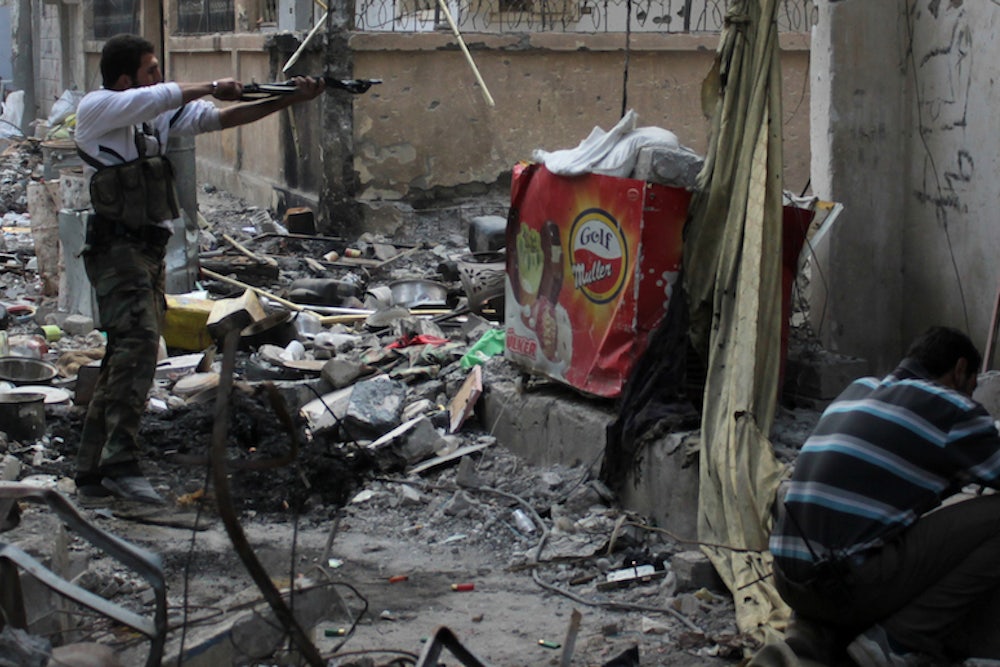Imagine the following scenario: the United States sends huge quantities of heavy military equipment to Syrian rebels. The rebels use that equipment and overthrow Bashar al-Assad's tyrannical regime in Damascus. Some unstable coalition takes power in Syria, and the civil war ends with an uneasy truce. The Syrian people are significantly better off, even if the country is still a good deal less calm than Sweden.
This is about as bright of a future as one could sketch for the unofrtunate country. And yet let's pretend that it comes to pass, but with one side-effect: amidst the general feeling of relative contentment, some Syrian rebels with ties to Islamic extremists manage to smuggle a few of those weapons to hardcore jihadists. Those weapons are then used to shoot down a Western aircraft, killing 50 Americans, including several government officials.
Now ponder these questions, while keeping the example of Libya in mind: To most Americans, would our Syria intervention look like a success? How loud would the domestic outcry be if Americans were killed with weaponry we had shipped? How many Congressional hearings would be called? How much impeachment talk would there be? How crazy would Congressional Republicans go? The answers here may not serve as excuses for inaction, especially if you think that the Syrian civil war is a titanic event in the Middle East's history whose outcome is crucial to American interests, and whose humanitarian costs demand action. But the vast, vast majority of Americans see no American interest in Syria, and want to stay uninvolved. The White House knows this, and so the political costs seem prohibitive.
I raise the following scenario because of the decision, announced on Wednesday, to stop American nonlethal aid to Syria's rebels. As The New York Times reports:
The administration acted after warehouses of American-supplied equipment were seized Friday by the Islamic Front, a coalition of Islamist fighters who have broken with the moderate, American-backed opposition, but who also battle Al Qaeda.
What does it mean?
“For all practical purposes, the moderate armed opposition that the administration really wanted to support — albeit in a hesitant and half-hearted way — is now on the sidelines,” said Frederic C. Hof, who as a State Department official worked on plans for a political transition in Syria and is now a senior fellow at the Atlantic Council. Under such circumstances, Mr. Hof said, the prospects for major progress at the peace conference were "pretty grim."
It is indeed pretty grim, but our Syria policy is doomed to disappoint proponents of more involvement. Yes, we are talking about supposedly "nonlethal" aid, which includes things like body armor and communications devices, and yes, the State Department says that it could reverse its decision in the future. But it is highly, highly unlikely that there is going to be any sort of major Western or American involvement of the sort that could seriously change the balance of the fighting.
What's left? Well, there is an upcoming "peace conference" that has about as much chance of succeeding as praying for Assad to become the region's Mandela. Until the political incentives in the United States are no longer aligned firmly against intervention, nothing is going to change.
